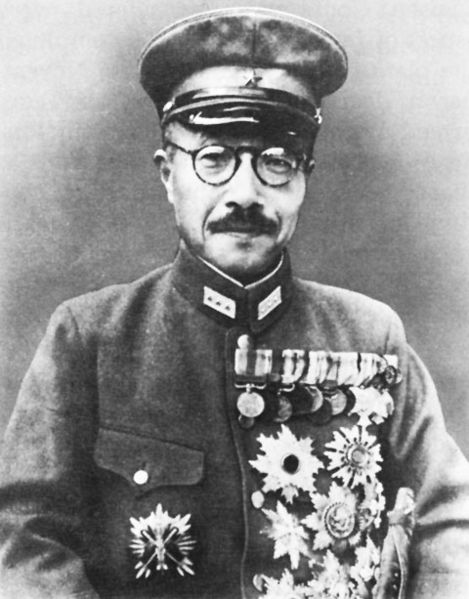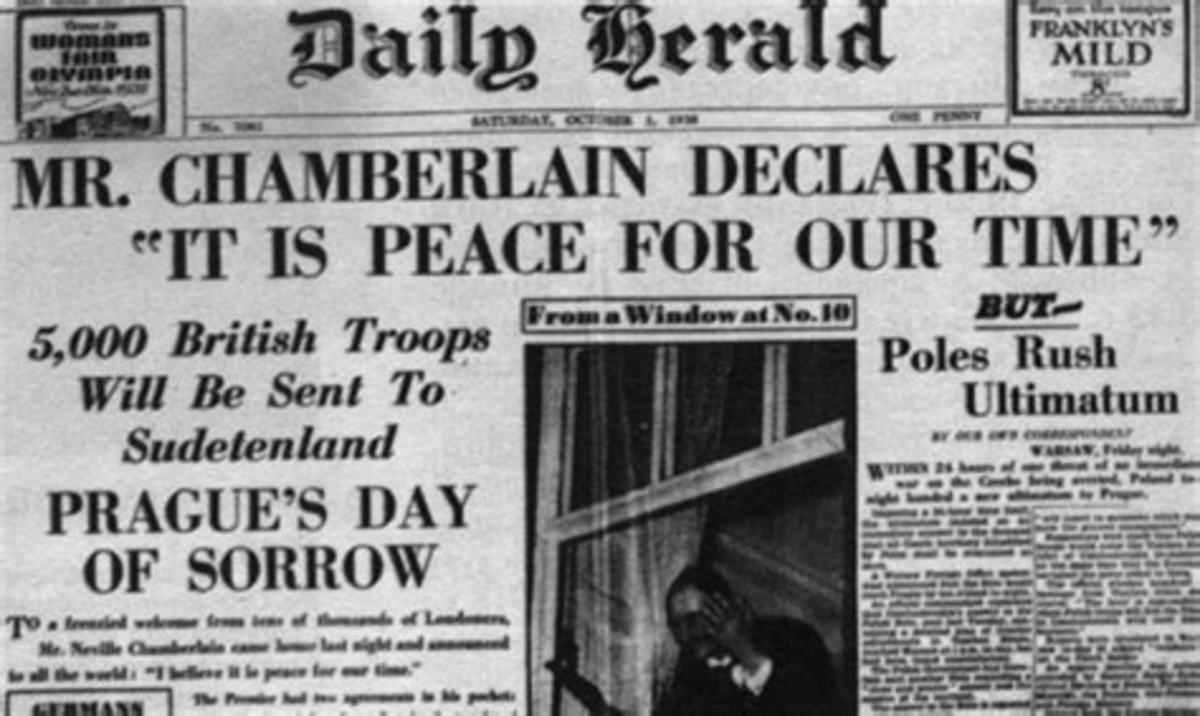First Impressions of Just War Theory

Dresden, etc.
In this article, I'd like to follow up on Faceless39's well-researched, well-written. and thought-provoking hub on Just War Theory. (Link at bottom.) Some of my points overlap with those of the earlier hub.
Disclaimer for the faint-of-heart: I intend to open at least one can of worms. I'd like to expand on the Dresden issue raised in the earlier hub, and then to venture forth into the mushroom-cloud realm, and other politically incorrect territory.
From one perspective, the British and American fire-bombing of World War II Dresden's predominantly civilian city center was Terrorism that did not quite work according to plan. The German soldiers, whose wives and children were incinerated in Dresden, were very angry, and were more determined than ever to fight on.
Only the bad guys stoop to terrorism, you say? Sorry, but a Terrorist is not just a violent civilian who gets his jollies bombing your friends for political reasons. And terrorism is not an ideology. Terrorism is a tactic that does not depend on the race, religion, or nationality of the people who employ it.
It is clear that the Dresden motives were mixed. In addition to attempted Terrorism, these motives included some not-so-thinly-veiled revenge for the Germans' fire-bombing of Coventry, England. Unfortunately, most German citizens of the time were not aware of that particular faux pas. As the old saying goes:
"Truth is the first casualty of war."
For a whole host of reasons, a free press in WW2 Germany would have made it difficult for the WW2 German leadership to portray their military as the guys in the white hats. And there would have been some serious Vietnam-War-style fragging on their side. (There was a failed attempt om Hitler's life in 1944.)
http://en.wikipedia.org/wiki/Fragging
Again, World War II Dresden's inner city was not a 'target-rich environment'. It did not have a high concentration of legitimate military/industrial targets. The Allies may have gotten more bang for the bomb if they'd been more discriminating, and if they were lucky.
However there was also a Game Theory element at play. If the Allies' had adopted a policy to avoid bombing civilian-rich, military-poor, industry-poor environments, and if they had telegraphed their intentions to ride on their high horsies, then it would have been rational for the Germans to concentrate ALL of their air defense resources on the target-rich environments.
Introducing more uncertainty into the game creates an incentive for the enemy to spread his air defenses more thinly. And it maximizes the effectiveness of bombing campaigns in the long run.
To summarize this first section, there were three rationales--officially acknowledged or otherwise--for the Allies' deliberate bombing of civilians in WW2 Dresden:
•state-sponsored Terrorism, which failed to achieve its objectives;
•revenge for the Germans' fire-bombing of Coventry;
•applied Game Theory.

Hiroshima and Nagasaki
Now let's talk about the two A-bombs that we Americans dropped on Japan in 1945. The first A-bomb on Hiroshima was a wake-up call to the Japanese leadership. But the second A-bomb, three days later, was a different ball of wax.
One hypothesis is that the Nagasaki bomb was the result of a translation error on the part of the Americans, who interpreted the Japanese response to the Hiroshima bomb, and to our demand for unconditional surrender, as intransigence, rather than as a bargaining ploy.
According to another school of thought, the Nagasaki bomb was intended as a message to the Soviets: Butt out; Japan is in our sphere of influence now.
My opinion? The WW2 nuking of Japanese civilians in Hiroshima was an example of Terrorism that worked. It probably saved lives on both sides. If we'd gone the conventional route, the Japanese would have fought to the bitter end. WW2 Japanese soldiers were known for their fierce loyalty--except when they were POWs.
For a good overview of Japanese culture at the time, read Ruth Benedict's book, The Chrysanthemum and the Sword.
http://en.wikipedia.org/wiki/The_Chrysanthemum_and_the_Sword
You may be able to find it in your local library. Moreover as you may have guessed, I don't buy into the Politically Correct meme that anything nook-yuh-lar is automatically bad.


Asymmetric Warfare?
Asymmetric Warfare is a buzzphrase that means different things to different people. According to Wikipedia,
"Asymmetric warfare is war between belligerents whose relative military power differs significantly, or whose strategy or tactics differ significantly."
The nuclear bombings of Hiroshima and Nagasaki, which I mentioned in the previous section, were examples of Asymmetric Warfare, according to the broad Wikipedia definition. However Asymmetric Warfare in the popular press is usually a code word for Jihadist Terrorism.
I'm mentioning Asymmetric Warfare, because it came up in the news, back in 2006. I was gobsmacked. The subject of the story: an American military figure, and his bizarre comment about the Guantanamo suicides.
"The illegal U.S. detention camp was back in the U.S. media briefly this month after three detainees committed suicide and U.S. officials brushed it aside as 'an act of asymmetric war directed against us' (Rear Admiral Harry Harris) . . . "
http://www.vermontguardian.com/commentary/062006/June23Editorials.shtml
(Scroll down to the "Deaf, blind, and dumb" article.) Harris intended to equate these suicides with acts of Terrorism. Here's a less paranoid interpretation: These prisoners, who were not recognized as Prisoners of War, who were never formally charged with a crime, and who committed suicide, were simply trying to escape George W's torture chambers, in the only way that they could. Hey, Harris! Is that such a difficult concept?
Unfortunately, there are a number of mediocrities like Harris in the upper echelons of the militaries of most large countries. Yes, they are 200% loyal to the presidents and prime ministers under whom they serve.
And yes, a standing army is a necessary evil. However there are some very strange people near the tops of the military food chains. And they need to be kept on short leashes. I question whether they have sufficient levels of self-awareness, moral development and emotional maturity to profit from ethical instruction by professional philosophers. Actually I question more than that.
Professional philosophers and the military
In a less-imperfect world, all of the soldiers wear distinctively colored Rugby uniforms, so that civilians are not mistaken for soldiers. They restrict their wars to well-defined battlefields, to the ocean, and to aerial dogfights over the countryside. Civilians do not get killed. And every child gets a pony from Santa at Christmas.
However in 20th and 21st Century wars, revolutions, 'low-intensity conflicts', and Jihadist attacks, 90% of the casualties are typically civilians. (Yes, the Falklands War was an exception.) It's the nature of the beast. In light of that fact, claims of intentions to apply philosopher-inspired Queensbury Rules to modern warfare are disingenuous at best.
Realistically, what does a formal education in philosophy train you to do in the 21st Century? First, to eviscerate obviously weak arguments with ruthless efficiency. Second, to be a public administrator. Your philosophical training will assist you in arriving at multiple interpretations of the laws, regulations, rules, and guidelines, under which you operate. Then you're in a position to pick and to defend the interpretation that suits your purposes. In that respect, a philosophy background is similar to a legal background. Third, to teach Philosophy 101 at the university level, and to nurture the next generation of professional philosophers.
Are professional philosophers more ethical than the rest of us? I'd love to see a valid scientific study, which sheds some light on that question. Until then, I'm going with the Null Hypothesis.
Like all professionals outside of universities, philosophers know which side their bread is buttered on. If they deviate too much from the party lines of their employers, they'll be pounding the pavement, looking for real jobs.
Why do military academies and war colleges put selected professional philosophers on their payrolls, and permit them to split hairs on the smaller questions? The primary objective is to generate PR points for domestic consumption. To impress the Great Unwashed. That's us.
Gee whiz, those Latin expressions sure do look impressive! You guys must really know what you're doing.
Having the imprimatur of professional philosophers gives the prezzie and Congress critters a small fig leaf if their wars of choice go South.
Gee whiz! It's unfortunate that our little war in Eastern Bohnya is blowing up in our faces. But at least we're striving to conduct our military operations in an ethical fashion!
On the big issues, the military fully expects their neutered pet philosophers to be team players, like John Yoo and George W's other toadies in that administration's (extra)legal department. Here's where Yoo was coming from:
"In several public fora heretofore, Yoo has insisted that no law -- neither domestic nor international -- prevents the president from authorizing the crushing of a child's testicles ... as a way of exerting pressure upon a terrorist suspect."
http://www.huffingtonpost.com/john-seery/testicles_b_109687.html
Do professional philosophers have a significant impact on the ways that wars and other military operations are actually conducted? If your answer is in the affirmative, here's my next question: What about President Hope-'n-Change's continuation of Dubya's 'unofficial' torture policy?
In the distant past, a philosopher's primary job was to make honest attempts to answer the big questions about "Life, the Universe and everything," to use the late Douglas Adams' expression. I have a question for professional philosophers who accept money from the military. Can you say, "Conflict of interest?"
Co-opting professional philosophers to serve as spin-meisters: The military definitely gets some chutzpah points for that. Whodathunk it?
Here's a link to Faceless39's hub on Just War Theory.
http://faceless39.hubpages.com/hub/Just-War-Theory-And-The-Principle-Of-Discrimination








